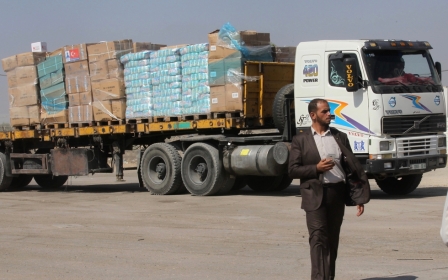Ultra-Orthodox Jews force cancellation of rail repairs on Sabbath in Israel

Israel saw major traffic jams on Sunday after a political dispute over work on the Jewish day of rest led to the cancellation of trains, officials said.
The cancellations affected 150,000 passengers out of a daily total of 213,000, the country's rail company said, leading to replacement shuttle buses and gridlock on roads.
Israeli Prime Minister Benjamin Netanyahu cancelled rail work set to be undertaken over Sabbath, the weekly Jewish day of rest from sundown Friday to sundown Saturday, after objections from ultra-Orthodox Jewish parties.
Ultra-orthodox parties, who demand strict adherence to Jewish law, hold key positions in Netanyahu's government and have often played a kingmaker role in Israel's politics.
They control 13 seats in Netanyahu's coalition, which includes 66 out of 120 seats in parliament.
Without the rail repairs, the trains on the line linking northern city Haifa with commercial capital Tel Aviv could not run as normal on Sunday, the start of the work week in Israel.
Repair work instead began after Sabbath ended, with the trains set to run again on Sunday evening.
Soldiers set to return to their bases after the weekend were reportedly among those affected by the cancellations, with special buses arranged for their transport in response.
Several hundred people protested over the cancellations in Tel Aviv and Haifa on Saturday, local media reported.
Netanyahu was widely criticised over the cancellations, but he sought to place blame on Transport Minister Yisrael Katz, his rival within the right-wing Likud party.
He argued that Katz had no reason to order the work to push ahead over Sabbath.
"This crisis is completely unnecessary," Netanyahu said at the start of a cabinet meeting on Sunday.
"Ministers are named to avoid crises, not to create them."
The two men have frequently jousted and speculation has built over whether Netanyahu will fire Katz, who receives support from a key faction of Likud.
Middle East Eye propose une couverture et une analyse indépendantes et incomparables du Moyen-Orient, de l’Afrique du Nord et d’autres régions du monde. Pour en savoir plus sur la reprise de ce contenu et les frais qui s’appliquent, veuillez remplir ce formulaire [en anglais]. Pour en savoir plus sur MEE, cliquez ici [en anglais].




